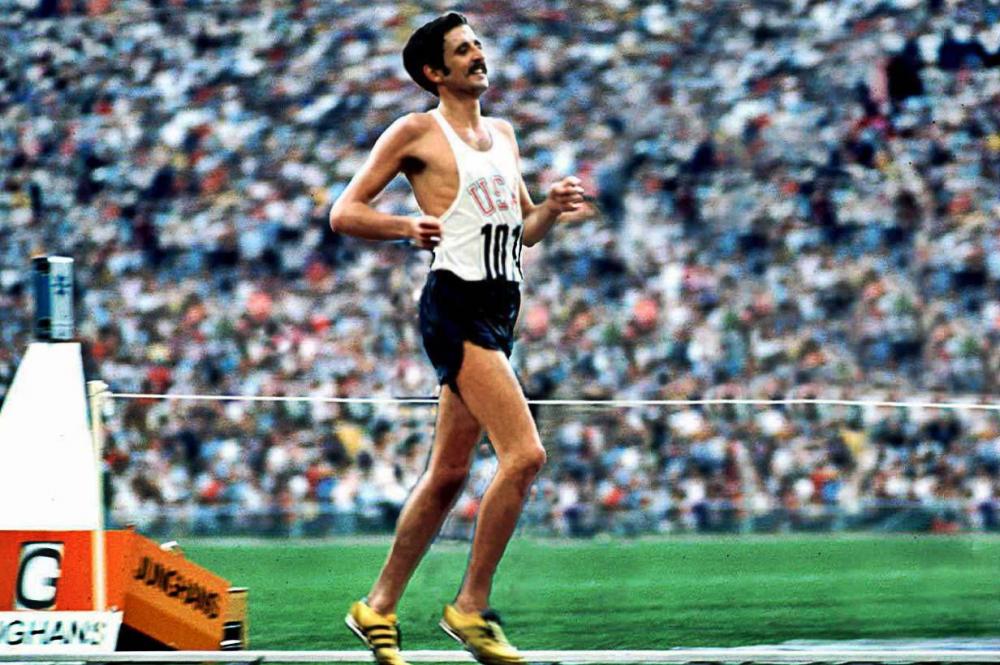The Greatest Marathoner Ever: A Contrary View
By Marc Bloom for DyeStat
(Note: Originally posted in August of 2021)
With the 49th anniversary of Frank Shorter’s historic 1972 Olympic marathon victory at Munich coming up on Sept. 10 — and hopefully a grand commemoration of the 50th next year — I would like to offer a brief on Shorter being the greatest marathoner of all time.
What about the invincible Kenyan Eliud Kipchoge?
Let’s look at the facts, and try and compare the two eras of Shorter and Kipchoge, almost a half-century apart, to arrive at some logical conclusions.
It is easy, and may I say convenient, to feel at the moment that no marathoner could even compare to Kipchoge: he’s right up front in our collective consciousness with one surpassing performance after another, the latest of course, his Olympic gold medal run in sweltering Sapporo. In the same vein, it’s easy to forget the bygone era of Shorter: how primitive it was with no IAAF World Championships, no World Marathon Majors, no pacesetters, few big-city marathons, no Nike, no way to earn a living from running in those amateur days — not yet anyway.
And how about those early ‘70s vintage running shoes! Slapped together, about as high-tech as Ted Corbitt’s old Hush Puppies.
It’s never easy to compare eras in any sport. Babe Ruth or Joe DiMaggio or Willie Mays? Elgin Baylor or Michael Jordan? Jesse Owens or Usain Bolt? More than a few cold ones have been downed on such arguments. But like Kevin Kline said as a presidential double in the charming 1993 film “Dave,” when trying to balance the federal budget without cutting allocations for children’s shelters, “let’s give it a try and see what we come up with.”
Olympic Marathons:
It is common knowledge that the 1976 “winner” in Montreal, Waldemar Cierpinski (also the 1980 “winner” in Moscow), was souped up by the notorious, criminal East German drug machine of the period. He was subsequently discredited in all quarters of the sport. Prior to 1976, Cierpinski had run only two marathons, both in Czechoslovakia, notching a third in 2:20:29 and a seventh in 2:17:31. A number of reports out of Germany in the 1990s detailed East German use of banned substances totaling hundreds (if not thousands) of athletes in various sports. Among the names cited was Cierpinski.
Shorter, who placed second, in effect became the champion; and with his Munich victory four years before, Shorter, like Kipchoge (who won in Rio…
CLICK HERE to Read the Full Original Article at RunnerSpace News…

